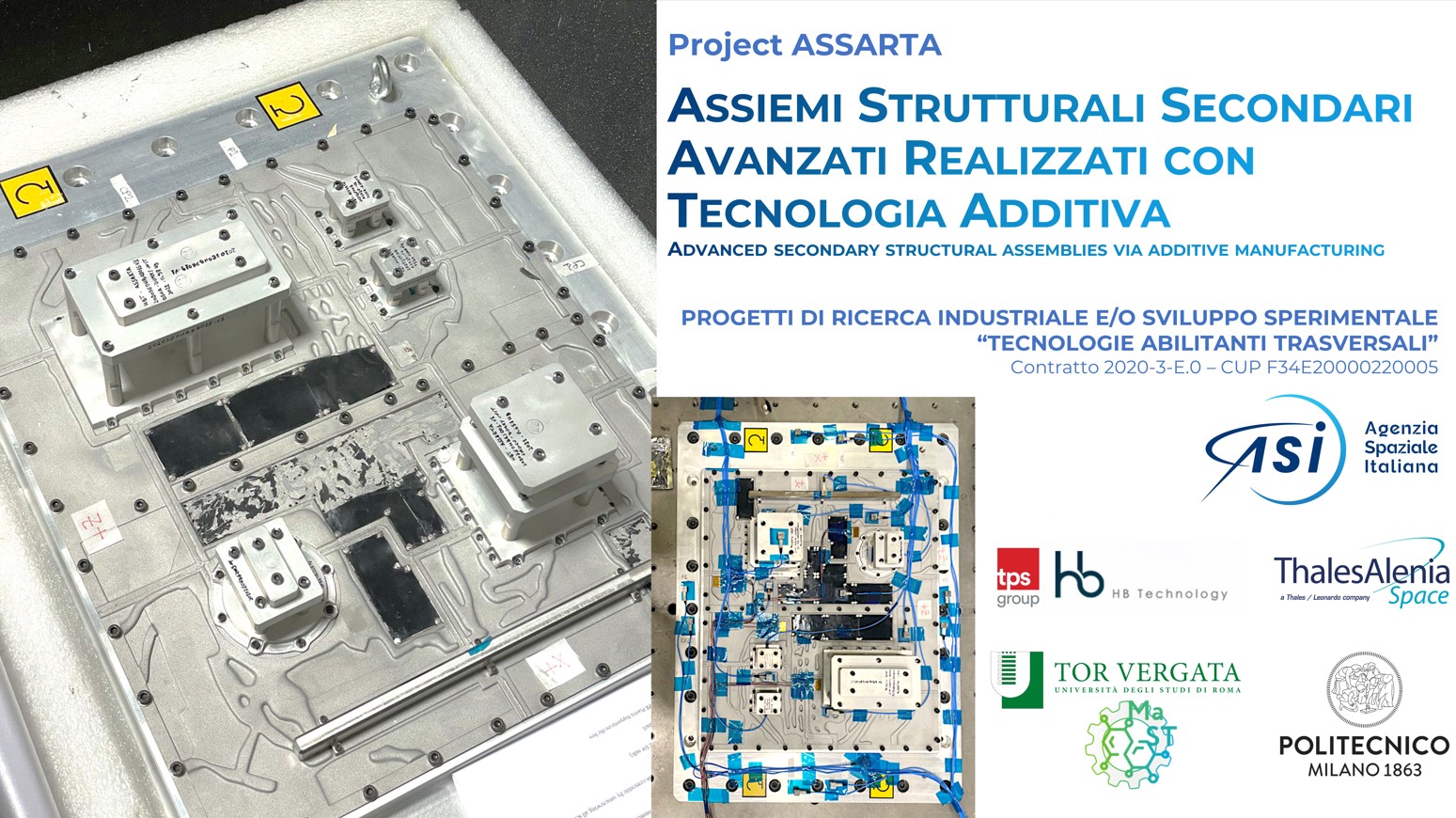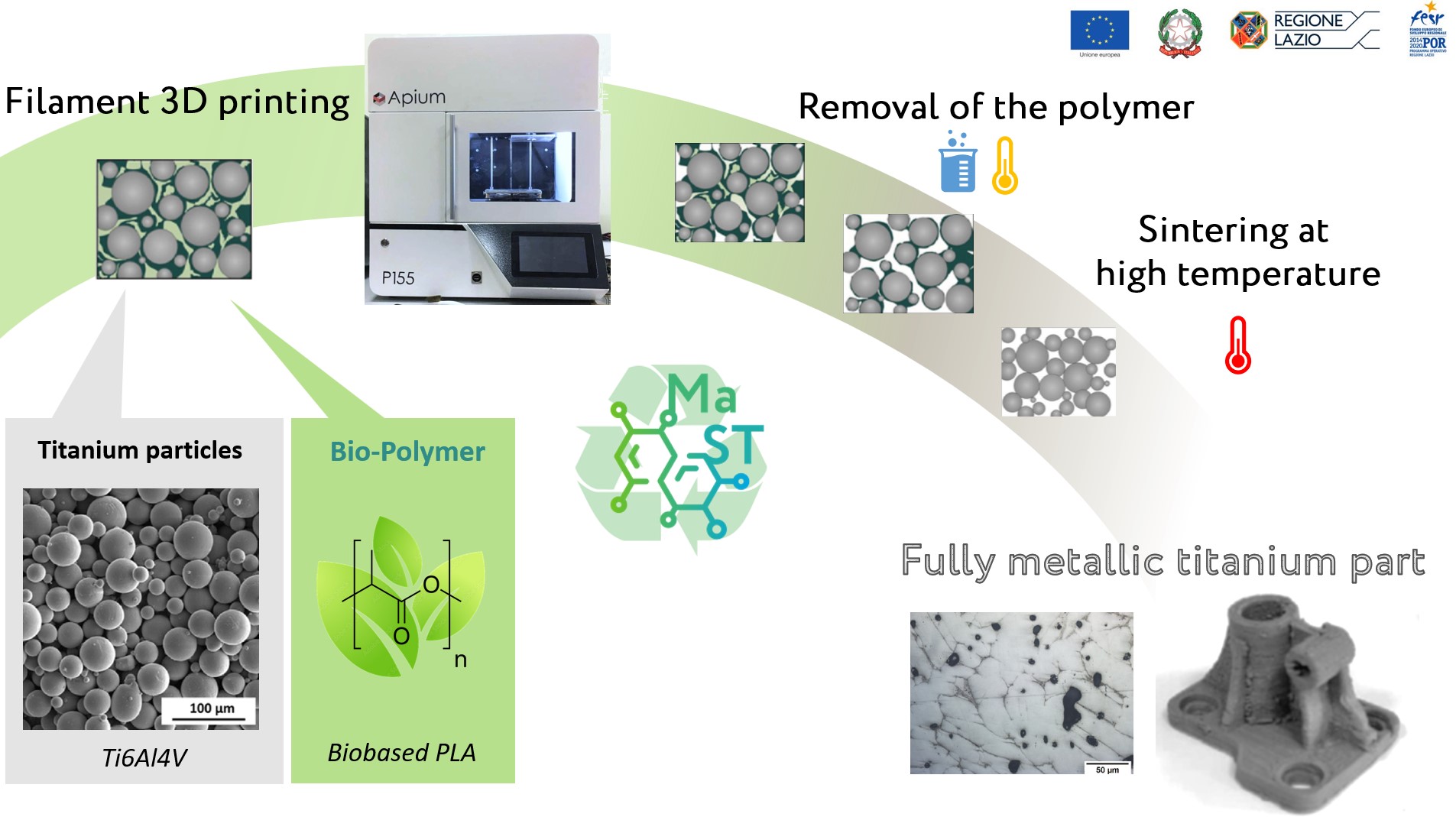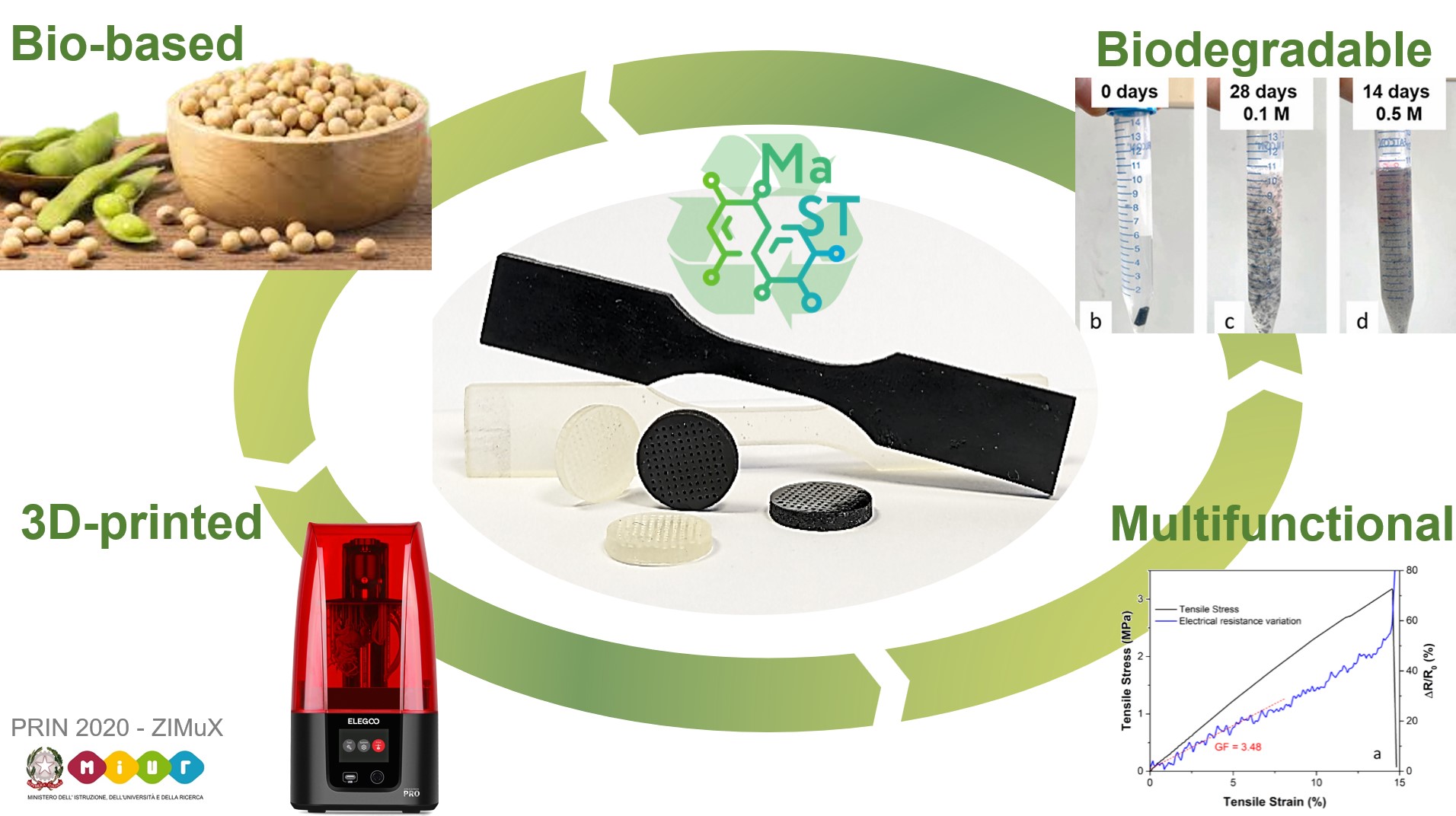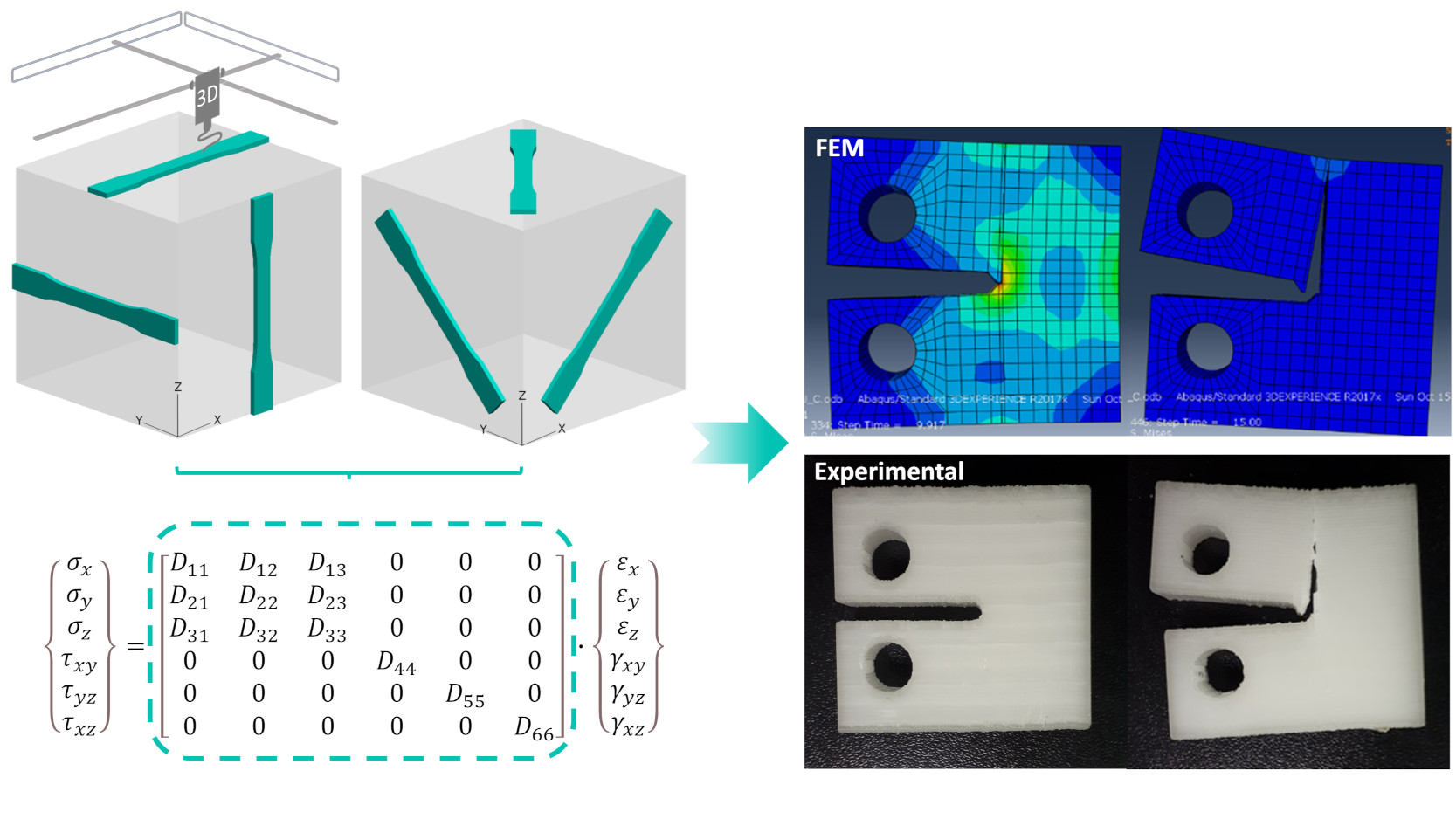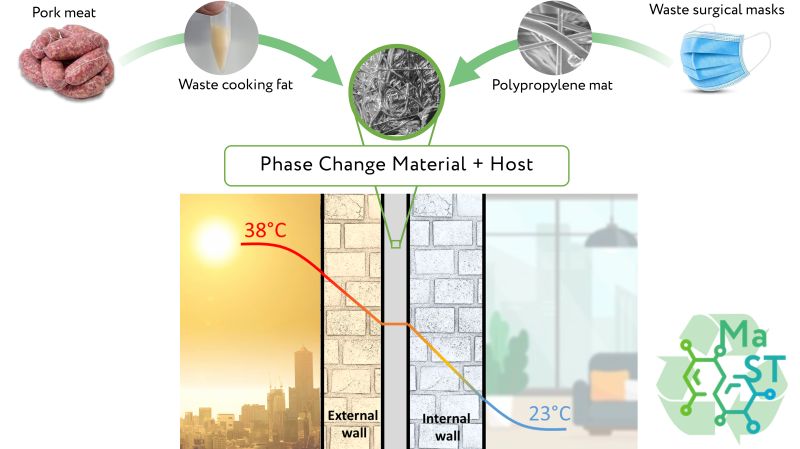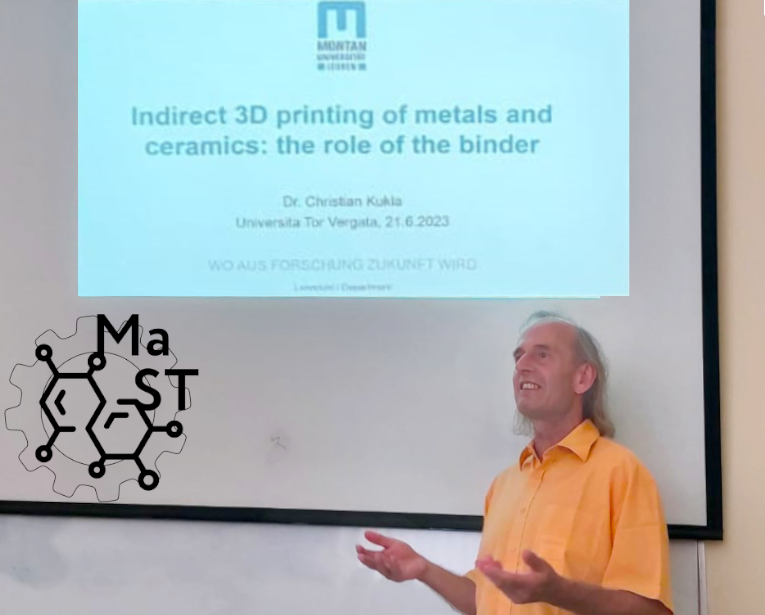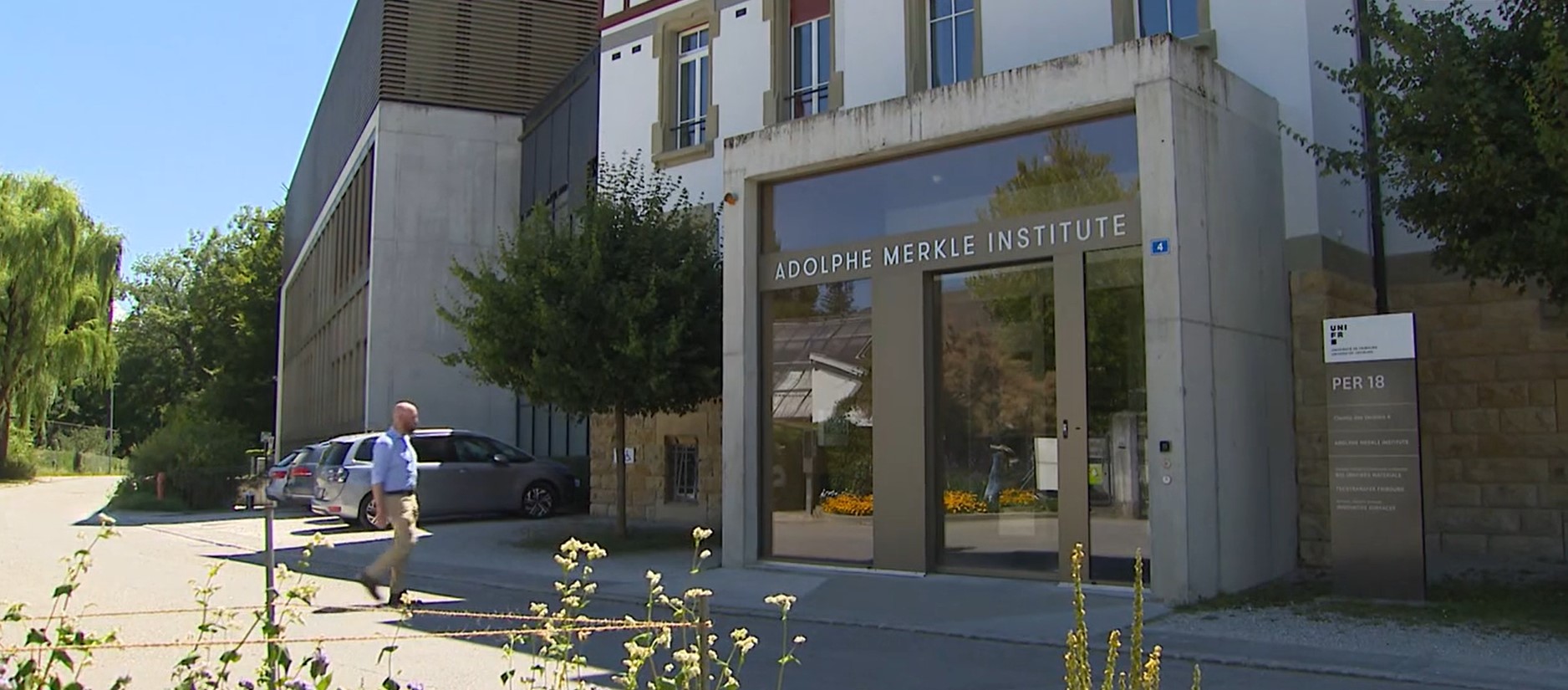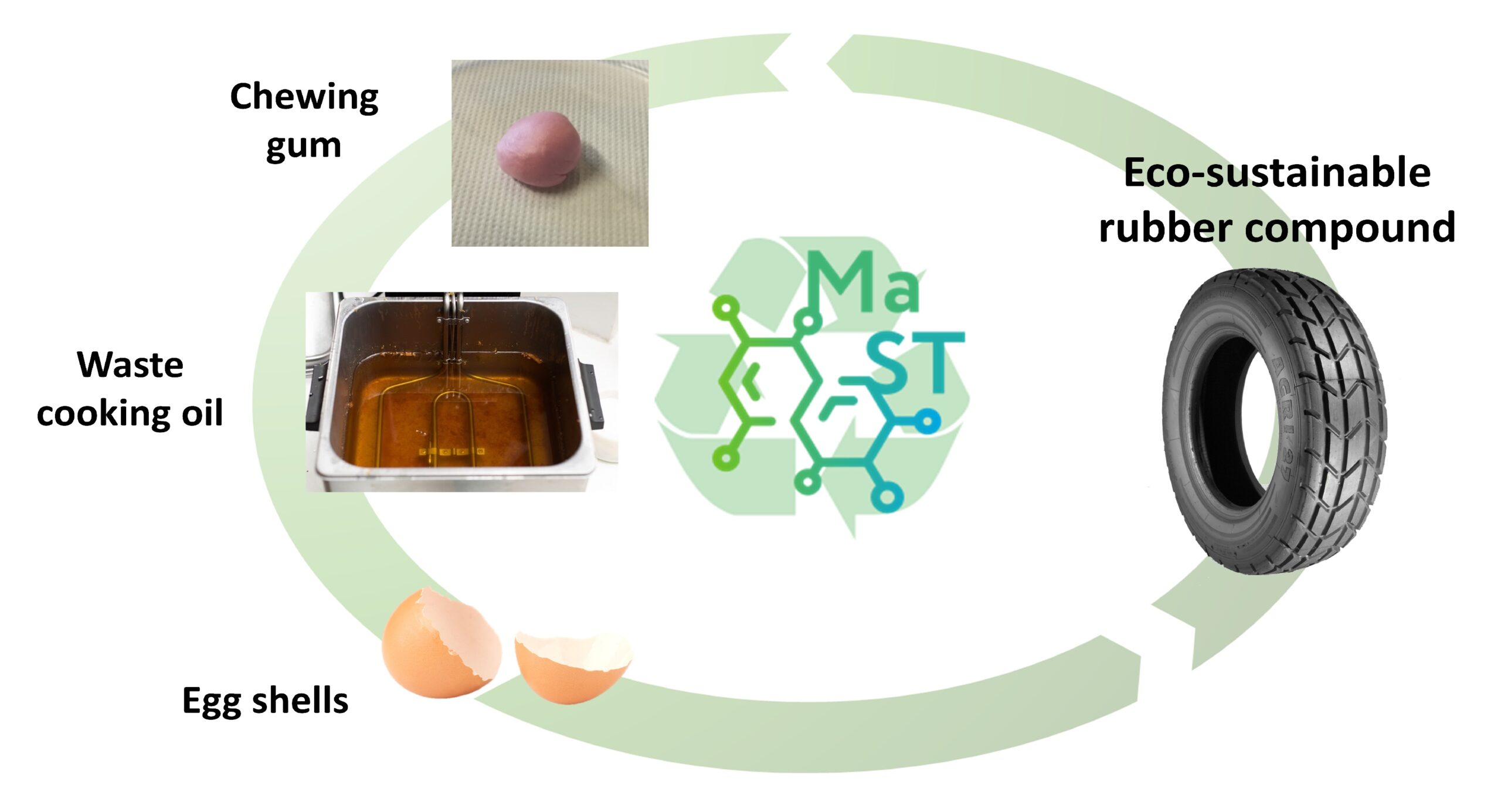🚀 Recently wrapped up research project! 🔬 Project ASSARTA (“Assiemi strutturali secondari avanzati realizzati con tecnologia additiva”, or in english “Advanced secondary structural assemblies via additive manufacturing”) was just successfully completed. With funding from Agenzia Spaziale Italiana and led by HB Technology S.R.L., we collaborated with amazing partners Thales Alenia Space and Politecnico di Milano to develop a topologically optimized 3D-printed aluminium […]
Posts
Filament 3D-printing of Titanium from biobased feedstock
In our latest paper, published in Elsevier’s Journal of Materials Research and Technology, we report on the filament 3D-printing of Titanium using biobased feedstock! 3D-printing of metals, which allows for complex geometries unattainable with traditional techniques, is generally carried out via Powder Bed Fusion (PBF) techniques, which are, however, extremely expensive and present additional difficulties […]
Biodegradable and self-monitoring biobased resin 3D printing
New article out! In our latest publication in Elsevier’s Composite Science and Technology journal, we present the development of 3D-printable biobased resins which are biodegradable and multifunctional. Soybean oil, which has been modified by epoxidation and acrylation (AESO), and carbon nanotubes were combined into UV-curable composite resins that were 3D-printed using the DLP technique. The […]
New instruments in our facilities
Our facilities are always in continuous expansion to support new projects, new analysis and new materials. Let’s welcome our new arrivals in the MaST labs: Cold-plasma gun The Piezobrush PZ3 handheld plasma gun by Relyon Plasma is capable of producing cold (<50°C) active plasma at atmospheric pressure for the surface treatment of materials. The plasma […]
ECNP conference in Łódź (Poland)
The 11th ECNP (European Centre for Nanostructured Polymers) conference has just concluded! 🌏 Our group joined European researchers in the welcoming Politechnika Łódzka (Poland) for four days of fruitful and stimulating presentations and posters! We had the honour to present some of our humble research works: A great thanks to the ECNP organising committee for the amazing job and […]
Modeling the fracture behavior of 3D-printed PLA as a laminate composite
New paper out! In our latest paper published in Elsevier’s Composite Structures journal, we investigate the numerical simulation of the failure mechanism of 3D-printed structures by modelling them as laminate composites. The use of a statistical approach (Anova) allowed us to analyse the influence of 3D-printing parameters on the mechanical properties and tune the Finite […]
Sustainable phase change materials (PCMs) from waste materials
Our latest work on sustainable and bio-based materials has just been published on Elsevier’s Materials Today Sustainability! In our research, we investigate the use of waste pork fat from the cooking process as Phase Change Material confined in host materials derived from polypropylene mats from used surgical masks and bio-silica from diatoms algae. The resulting […]
Prof Kukla’s seminar
We had the great honour of hosting Prof Christian Kukla from the Montanuniversität Leoben for a terrific seminar titled “Indirect 3D printing of metals and ceramics“. Thank you for sharing some of your precious knowledge on binder systems and sintering, derived from a decennial experience and pioneering work on metal and ceramic injection moulding and 3D printing. https://www.linkedin.com/feed/update/urn:li:activity:7083105334440906754
INTEGRATE project on Swiss TV
The INTEGRATE project was recently featured in the “Il Giardino di Albert” science program on Swiss Italian TV (Radiotelevisione Svizzera, RSI). The report (in Italian) brilliantly illustrates the background, aim and workings of the project aimed to develop artificial soft muscles powered by metabolic energy, in which the Material Science and Technology group will develop […]
Toward sustainable rubber compounds
We are proud to announce our latest publication in the Journal of Applied Polymer Science (Wiley), “Toward sustainable rubber compounds: the use of waste raw materials”! The sustainability and circular economy in the plastic and rubber industry are important targets to fight climate change. Our work originates from the idea of realizing sustainable rubber compounds […]


